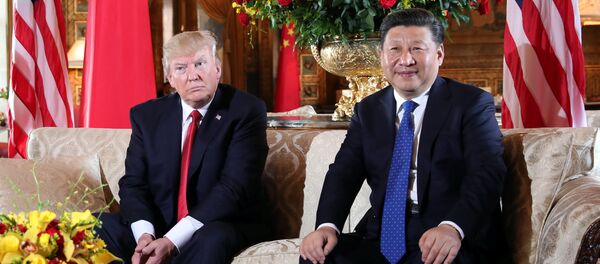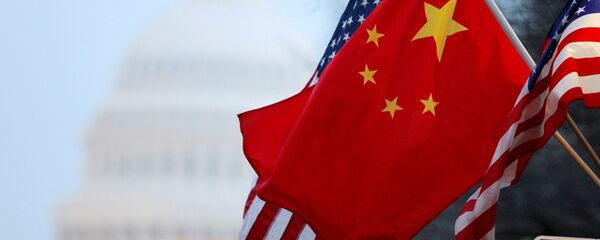The bill was condemned by Chinese Foreign Ministry spokesman Lu Kang, who suggested the legislation violates the “One China” principle which maintains that there is a single Chinese government, to which Taiwan is subject, and does not recognize Taiwan as a sovereign nation.
Beijing is also suspicious of Taiwanese President Tsai Ing-wen, fearing she will advocate for Taiwan’s formal independence, though Tsai has stated that she wants peaceful relations with Beijing.
"China has already lodged stern representations with the United States about" the bill, Lu told reporters, adding that there should be no contact between the Taiwanese and US militaries and accusing Washington of interfering with Beijing’s internal affairs.
He remarked, "We urge the United States to fully recognize the serious harmfulness of the relevant clauses in the act, and should not allow them into law, and not turn back the wheel of history to avoid damaging the broad picture of Sino-US cooperation."
The National Defense Authorization Act (NDAA), passed Friday, states: "It is the sense of Congress that the Secretary of Defense should conduct a program of senior military exchanges between the United States and Taiwan that have the objective of improving military-to-military relations and defense cooperation between the United States and Taiwan."
US involvement with Taiwan is a sensitive topic for China even though Washington currently has no formal dealing with the island nation. Beijing has demanded Washington reconsider selling Taipei $1.42 billion worth of weapons, as it would contradict a "consensus" reached by US President Donald Trump and Chinese President Xi Jinping when they met in early April.
Tensions between China and Taiwan flared after then-President-elect Trump spoke with President Tsai, breaking decades of diplomatic protocol. Chinese Foreign Ministry Spokesman Geng Shuang said in a statement at the time, "The 'One China' principle is the political foundation of China-US relations," urging Washington to handle the issue “carefully and properly to avoid causing unnecessary interference to the overall China-US relationship."




